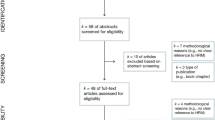Abstract
It may be quite rightly stated that the EFQM Model of the European Foundation for Quality Management is the basic reference model for those organisations whose aim is to achieve excellence. It offers an integral and integrating approach to the most relevant dimensions of the reality of the organisation and permits the establishment of framework that is both objective and rigorous and based on a structured diagnosis.
The EFQM Excellence Model is based on a humanist approach that situates the client (in all aspects/senses) as the centre and ultimate reason of the activity of the organisation, emphasizing the role of the latter as a responsible member of the community. An ethical approach is therefore adopted as the best way to serve the long-term interest of the organisation and the people that integrate it (as well as their sustainability in time), exceeding expectations and the policy of society in general.
This article analyses in depth, and from the point of view of ethics (one of the key aspects in the search for excellence), the possible ethical implications in the deployment of the nine basic criteria of the EFM Excellence Model which facilitate the understanding of the most relevant dimensions of the reality of an organisation.
Similar content being viewed by others
References
Aristotle: 1988, Ética Nicomáquea (Gredos, Madrid).
Blanchard, K. and M. O'Connor: 1997, Dirección por Valores (Gestión 2000, Madrid).
Blount H. L.: 1999, The European Quest for Excelence.EFQM 10th Anniversary Book (EFQm, Brussels).
Evan, W. M. and R. E. Freeman: 1993, ‘A Stakeholder Theory of the Moder Corporation: Kantian Capitalism’, in T. Beauchamp and N. Bowie (eds.), Ethical Theory and Business (Prentice Hall, Englewood Cliffs), pp. 75–93.
European Foundation for Quality Management: 1999, The EFQM Excellence Model 1999 (EFQM, Brussels).
Fernández Fernández, J. L.: 1996, Ética para Empresarios y Directivos (ESIC, Madrid).
Junta de Castilla y León, Consejería de Sanidad y Bienestar Social, Secretaría Regional de la Mujer: 1999, Libro Blanco de la Igualdad de Oportunidades entre Hombres y Mujeres (Forum Calidad, Madrid).
Luijk, H. J. L. van: 1990, ‘Recent Developments in European Business Ethics’, Journal of Business Ethics 9, 545–550.
Malcolm Baldrige National Quality Award: 1999, Criteria for Performance Excellence, Baldrige National Quality Program 1999.
Martín Castilla, J. I. et al.: 1988, El Modelo Europeo de Excelencia en la Administración de la Comunidad de Madrid (Comunidad de Madrid).
Martín Castilla, J. I.: 2001, ‘El Modelo EFQM de Excelencia Como Referente en la Modernización de la Administración PÚblica Española’, R.P.I. 103.890; 17/05/2001, Madrid.
Mc Hugh, F. P.: 1988, Keyguide to Information Sources in Business Ethics (Nichols Publishing, New York).
Morris, T.: 1997, Si Aristóteles dirigiera la General Motors (Planeta, Barcelona).
Ortiz Ibarz, J. M.: 1995, La Hora de la Ética Empresarial (McGraw-Hill, Madrid).
Author information
Authors and Affiliations
Rights and permissions
About this article
Cite this article
Martín-Castilla, J.I. Possible Ethical Implications in the Deployment of the EFQM Excellence Model. Journal of Business Ethics 39, 125–134 (2002). https://doi.org/10.1023/A:1016344304416
Issue Date:
DOI: https://doi.org/10.1023/A:1016344304416




